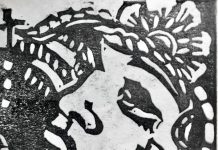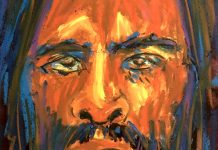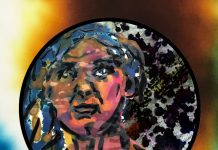Faith is one of the great spiritual themes in Luke’s Gospel, and in this passage the disciples faith is being called upon in three different ways. First, they are asked to expose themselves to the vulnerability of the indigent and propertyless. “Take nothing for your journey,” they’re told. I’ve known several people who have undertaken similar acts of faith. A Jesuit who was sent out walking between Minnesota towns, begging from door to door as part of his novitiate. A poet who walked the Camino de Santiago three times, and on the last and longest pilgrimage started from France, walking as his feet swelled and his boots broke, relying on the other pilgrims to hand him the things he needed when he needed them. Both talked about these journeys as acts of faith, moments when they set aside the communities, possessions, and riches that normally providedfor them and relied on God entirely. But as I honor them for this, I also recognize that this is how a lot of people in the world live every day – without possession or security, and with a different and more profound faith than I am capable of experiencing from my position of relative privilege and wealth.
In a way, the commissioning of the disciples is an embodiment of the beatitudes. Jesus has told them what the blessed are like, and now he’s inviting them to experience that blessedness. This is not to make an idol of poverty, but simply to say that there are times in our lives when we might need to experience blessedness as a raw, unvarnished reliance on God. We don’t often think of blessedness in this way. When asked to name our blessings, we often name our loved ones, some success we’ve had, some security we’ve attained. Can we also name solitude, and even loneliness, as a blessing? Can we name failure as a blessing? Can we name loss as a blessing? These are the blessings that the disciples are immersed in as they go to bring healing and blessing to others.
It is not surprising that Herod comes back into the narrative at this point. Herod’s wealth and power is the antithesis to this blessing. In a few chapters we will hear about him again when Pharisees warn Jesus that Herod wants to kill him. Some Biblical commentators suggest that Jesus sends the apostles out in order to keep Herod from finding him. Herod, after all, doesn’t know what Jesus looks like, so must be confused by reports of twelve Jesus-like figures doing Jesus-like things. Who to arrest, when one person has become twelve? But at this point, Herod is more curious then threatening. So why doesn’t Jesus want Herod to find him? In a way, Herod is the first of a certain type whom we will meet again in Acts, the person who believes that he can buy the blessing, or that his power and privilege makes blessing his right. Maybe Jesus isn’t hiding from Herod as much as providing him with twelve more examples of what real blessing, and real faith, looks like. These examples won’t help Herod, or the Herod in us, but a profligate God keeps spreading them like seeds over the landscape.
When the apostles return from their wanderings, they haven’t quite learned the lesson of faith that Jesus was trying to teach them. The multiplication of the loaves and fishes is a restatement of that lesson, a miracle that reiterates the wisdom in relying completely on God. It’s a more challenging lesson this time, because the apostles feel responsible for the crowd’s wellbeing, not just for their own. And this is the thing that keeps me, and probably most of us, from experiencing the beatitudes in our lives. If I had no responsibilities, if I owed nothing to the people I loved, then I might give away all of my possessions and wander as a mendicant from place to place. But I have a spouse and a child, and I owe them something. The apostles feel that they can’t provide for the crowd, but they can at least make sure that the people are provided for in the surrounding towns and villages. Jesus challenges them, and us, to a faithfulness that might feel very irresponsible.
Finally, he challenges their faith by giving them a glimpse of the end game. He is going to experience suffering and death, and the disciples and apostles are, eventually, going to experience the same thing. Can we grow more faithful in the midst of loss? There will be so much more to say about the cross in the days to come, but it looms ever over us, challenging our presumptions and calling us into deeper faith.



